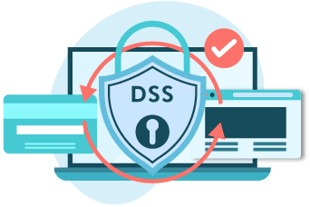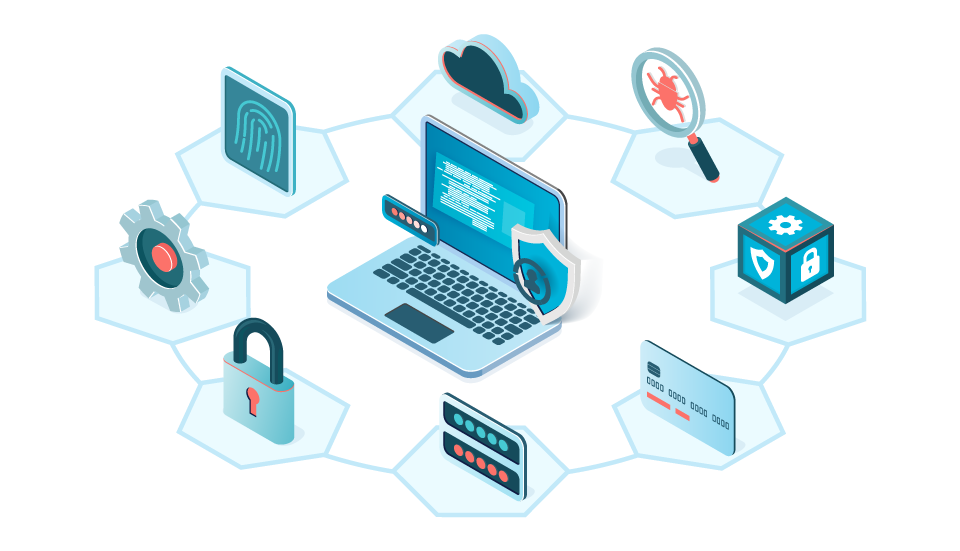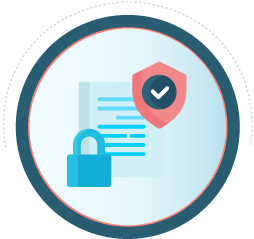
With the rise of online shopping and electronic payments, payment card data security is paramount. The PCI DSS (Payment Card Industry Data Security Standard) was established to safeguard sensitive cardholder information and protect against data breaches and fraud. In this blog, we will explore the significance of PCI DSS compliance and the critical role of security testing.
Payment Card Industry Data Security Standard
Payment Card Industry Data Security Standard (PCI DSS) refers to a set of security standards for companies that are involved in accepting, processing, storing or transmitting credit card information to ensure the maintenance of a secure environment.
- Managed by PCI SSC (Payment Card Industry Security Standards Council)
- Latest standard version – 3.2.1(released in May, 2018)
- Validation performed quarterly or annually by
- Quality Security Assessor
- Internal Security Assessor
- Report on Compliance
- Self Assessment Questionnaire

Understanding PCI DSS Compliance
PCI DSS is a comprehensive set of security standards designed by major payment card brands, including Visa, Mastercard, American Express, Discover, and JCB. The standards apply to any organization that handles payment card data, including merchants, financial institutions, and service providers. The primary objective of PCI DSS is to ensure the secure processing, storage, and transmission of cardholder data to prevent data theft and unauthorized access.

PCI DSS Compliance Requirements
PCI DSS specifies 6 groups (Control Objectives) for compliance requirements, listed below:
Network security
- Installation of firewall
- Security of system passwords
Cardholder data protection
- Protect the stored data
- Encryption of data transmissions
Vulnerability management
- Use of an antivirus
- Secure system and applications development
Access control
- Unique Id assignment to each personnel
- Restriction to physical access to CDE(Cardholder Data Environment)
Network monitoring
- Monitor access to network resources
- Regular testing of security systems and procedures
Information security through policies
- Implementation of IT policies
- Educate staff
Role of Security Testing in PCI DSS Compliance
PCI DSS compliance is not a one-time accomplishment. It requires continuous efforts and adherence to security best practices. Security testing is vital to PCI DSS compliance, as it helps identify vulnerabilities and weaknesses in an organization's security measures.
Different types of security testing play essential roles in maintaining a robust security posture:
- Vulnerability Scanning: Regular vulnerability scanning is a fundamental requirement of PCI DSS compliance. Organizations must conduct security testing to identify known vulnerabilities and potential security risks. Vulnerability scanning tools help identify weak points in the infrastructure and applications, enabling timely remediation.
- Penetration Testing: Involves simulating real-world cyberattacks on an organization's systems and applications. Attempt to exploit vulnerabilities to assess the effectiveness of an organization's defenses. Penetration testing helps identify security gaps and potential attack vectors before malicious actors can control them.
- Application Security Testing: Applications handling payment card data must undergo rigorous security testing. Application security testing includes code reviews, static and dynamic analysis, and manual testing to identify and remediate security flaws in software.
- Security Compliance Testing: PCI DSS compliance requires organizations to have comprehensive security policies and procedures. Security policy testing ensures that these policies are effectively implemented and followed throughout the organization.
Benefits of PCI DSS Compliance and Security Testing
-
Enhanced Data Security
PCI DSS compliance and security testing helps organizations implement robust security measures, protecting payment card data from theft and unauthorized access. Regular testing ensures that vulnerabilities are promptly addressed, reducing the risk of data breaches.
-
Customer Trust
Compliance with PCI DSS standards instills confidence in customers that their payment card information is handled securely. Demonstrating a commitment to data security builds trust and fosters customer loyalty.
-
Legal and Regulatory Compliance
PCI DSS compliance is a legal and contractual requirement for organizations handling payment card data. Complying with these standards helps organizations avoid penalties, fines, and legal liabilities.
-
Brand Reputation Protection
A data breach can severely affect an organization's reputation. Maintaining PCI DSS compliance and conducting regular security testing demonstrates a commitment to data security and protecting the organization's brand image.
-
Cost Savings
Proactive security testing helps identify and remediate vulnerabilities before malicious actors exploit them. Investing in security testing is more cost-effective than dealing with the aftermath of a data breach.
-
Continuous Improvement
PCI DSS compliance requires ongoing monitoring and security updates. Regular security testing helps organizations improve their security posture and stay ahead of evolving threats.
Penetration Testing Approach
For PCI DSS compliance, both vulnerability scan and penetration testing are required. While vulnerability scan identifies vulnerabilities through automated procedures, penetration test exploits those vulnerabilities primarily through manual techniques.
Pre Penetration Testing Phase
- Identify system components dealing with CDE(Cardholder Data Environment)
- Detailed documentation including diagrams and process flows of the scoped components
- Define rules of testing
- Define depth of pen testing and success criteria
Penetration Testing Phase
- Application layer: Access control check and unauthorized access to data
- Network layer: Automated network scans and attempts to bypass authentication controls and authorization across the CDE(Cardholder Data Environment)
- Social engineering: Convincing someone non-technically to open a door for attack
Post Penetration Testing Phase
- Notification if the cardholder data is accessed
- Execute incident response plan
- Retest identified vulnerabilities
- Build the best practices for handling found vulnerabilities
- Clean the whole testing environment
PCI DSS Compliance Security Testing Tool
HackerGuardian is a comprehensive vulnerability assessment and compliance scanning tool. It is designed to help organizations identify security weaknesses, vulnerabilities, and compliance gaps in their network infrastructure and web applications. It assists organizations in meeting various regulatory and industry compliance standards, including PCI DSS, ensuring their systems are secure and protected from cyber threats. Key Features of HackerGuardian:

- PCI DSS Compliance Scanning: One of the primary features of HackerGuardian is its ability to conduct PCI DSS compliance scans. It helps organizations meet the specific security requirements set forth by the Payment Card Industry Data Security Standard (PCI DSS) to protect cardholder data during payment card transactions.
- Vulnerability Assessment: HackerGuardian performs thorough vulnerability assessments, scanning for potential security flaws and weaknesses in the network and web applications. It identifies common vulnerabilities such as SQL injection, cross-site scripting (XSS), and other security issues that could expose an organization to cyber threats.
- Certificate Management: HackerGuardian also includes certificate management functionalities. It helps organizations manage and monitor SSL/TLS certificates for their websites, ensuring they remain valid and secure.
- Scan Scheduling: HackerGuardian allows users to schedule automated scans at regular intervals, enabling continuous monitoring of security posture and ensuring that new vulnerabilities are promptly identified and addressed.
- Detailed Reporting: The tool generates detailed and actionable reports, providing clear insights into the organization's security status and compliance posture. The reports include recommendations for remediation and achieving compliance with applicable standards.
- Web Application Scanning: HackerGuardian scans web applications for potential security issues, assisting in identifying and mitigating vulnerabilities that attackers could exploit.
- API Integration: The tool can be integrated with other security tools and systems through APIs, enabling seamless data exchange and facilitating a more comprehensive security posture.
HackerGuardian is a robust vulnerability assessment and compliance scanning tool that helps organizations protect their networks, web applications, and sensitive data from cyber threats. With its PCI DSS compliance scanning capabilities and comprehensive vulnerability assessments, it assists organizations in meeting regulatory requirements and maintaining a robust security posture. Using HackerGuardian, organizations can proactively identify and address security weaknesses, reducing the risk of data breaches and ensuring a secure environment for their customers and stakeholders.
Conclusion
In an ever-evolving threat landscape, organizations must embrace security testing as a proactive measure to safeguard payment card data. PCI DSS compliance and security testing is not merely a checkbox to be ticked. It is essential to a comprehensive cybersecurity strategy that strengthens data security and upholds customer confidence in the digital payment ecosystem. With the right approach to compliance and continuous testing, organizations can avoid potential threats and ensure secure payment card transactions for their customers. At QASource, we have a team of experts who are well-versed in PCI DSS compliance and security testing, and our mission is to ensure robust payment card data security. We do this by identifying critical security vulnerabilities without compromising quality. Visit QASource now to learn more about the testing services offered.
Have Suggestions?
We would love to hear your feedback, questions, comments and suggestions. This will help us to make us better and more useful next time.
Share your thoughts and ideas at knowledgecenter@qasource.com

